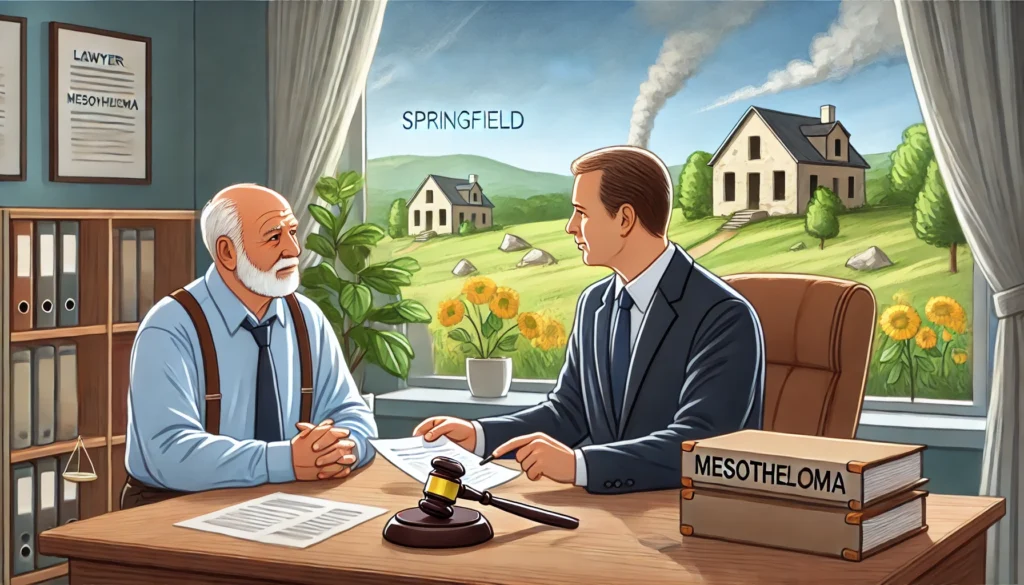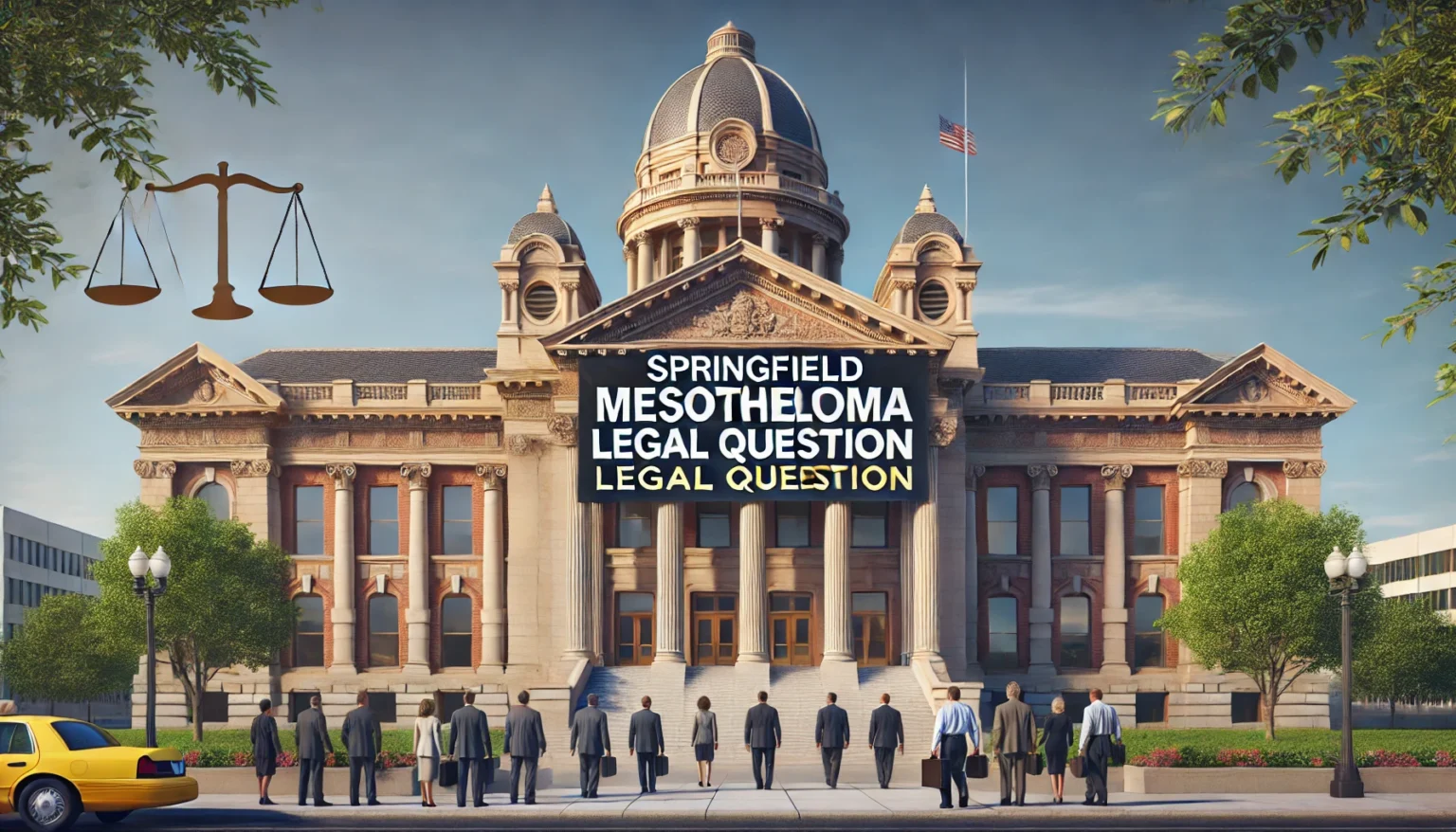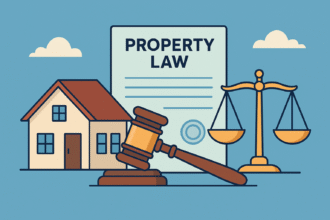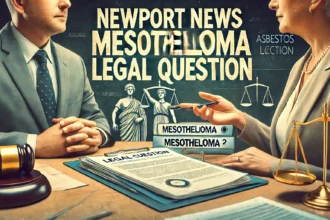Mesothelioma is a devastating cancer caused by asbestos exposure, often leaving victims and their families overwhelmed with questions about their legal rights and options. For residents of Springfield dealing with a Springfield Mesothelioma Legal Question, understanding the legal landscape can help in pursuing compensation and justice. This guide provides detailed, easy-to-understand information about mesothelioma and the legal actions available.
Understanding Springfield Mesothelioma Legal Question
If you or a loved one has been diagnosed with mesothelioma in Springfield, addressing a Springfield mesothelioma legal question is an important step toward seeking justice and financial relief. These legal questions often revolve around understanding your rights, identifying the parties responsible for asbestos exposure, and navigating the process of claiming compensation.
Legal action is crucial for covering medical expenses, lost income, and other costs associated with mesothelioma. It also ensures accountability for companies that neglect asbestos safety standards. By consulting an experienced mesothelioma attorney in Springfield, documenting your work and medical history, and acting within the statute of limitations (usually two years), you can strengthen your case.
Addressing these legal questions is not just about obtaining compensation but also about securing justice for yourself and your family while highlighting the importance of asbestos awareness.
What is Mesothelioma and How Does It Occur?
Mesothelioma is a rare cancer that develops in the lining of certain organs, most commonly the lungs (pleura), abdomen (peritoneum), or heart (pericardium). Its primary cause is exposure to asbestos, a mineral once widely used for insulation and fireproofing.
In Springfield, asbestos exposure often occurred in:
- Workplaces: Construction sites, factories, and shipyards where asbestos materials were commonly used.
- Homes and Public Buildings: Older buildings built before the 1980s may still contain asbestos.
- Secondary Exposure: Family members of workers exposed to asbestos can also develop mesothelioma through contact with contaminated clothing or equipment.
The disease typically takes decades to develop after exposure, making it difficult to pinpoint the exact source of asbestos contact without thorough investigation.
Legal Rights of Mesothelioma Victims
If you or a loved one has been diagnosed with mesothelioma, you have the right to seek legal compensation. Various legal pathways are available, depending on the circumstances of exposure.
Personal Injury Claims
If you were directly exposed to asbestos and have been diagnosed with mesothelioma, you can file a personal injury lawsuit. This legal action holds responsible parties—such as manufacturers, employers, or property owners—accountable for their negligence.
Wrongful Death Claims
Surviving family members may bring a wrongful death case if a loved one died from mesothelioma. This type of claim helps recover expenses like funeral costs, lost income, and compensation for the emotional loss.
Asbestos Trust Fund Claims
To compensate victims of asbestos exposure, some firms have set up trust funds. Filing a claim with these trust funds is often a quicker and less adversarial process compared to a lawsuit.
Key Legal Considerations for Mesothelioma Cases
Understanding the legal process is critical for building a strong case. Here are some important factors to consider:
Statute of Limitations
The law sets strict deadlines for filing mesothelioma-related claims:
- Personal Injury Claims: Typically, victims have two years from the date of diagnosis to file a lawsuit in Springfield.
- Wrongful Death Claims: Families have two years from the date of their loved one’s death to pursue legal action.
You may forfeit your right to compensation if you don’t file within these deadlines.
Proving Your Case
To win a mesothelioma case, victims or their families must provide evidence that:
- Asbestos exposure occurred, and
- The exposure directly caused the mesothelioma diagnosis.
This often requires extensive documentation and the expertise of a qualified attorney.
Compensation Available to Victims
Victims of mesothelioma may be entitled to significant compensation, which can help ease the financial burden of the disease. Types of compensation include:
- Medical Expenses: Coverage for treatments, medications, surgeries, and long-term care.
- Lost Wages: Reimbursement for income lost due to the inability to work.
- Pain and Suffering: Compensation for the emotional and physical toll of the disease.
- Funeral Costs: Assistance with expenses related to the passing of a loved one.
- Punitive Damages: In some cases, additional compensation may be awarded to punish negligent companies.
Evidence Required for a Strong Legal Case
Gathering the right evidence is essential for a successful mesothelioma claim. Key pieces of evidence include:
Medical Records
- Diagnosis reports, treatment plans, and physician statements.
Employment History
- Records showing where you worked and any known asbestos exposure.
Witness Statements
- Testimonies from coworkers, family, or others familiar with your exposure.
Product Identification
- Evidence linking asbestos-containing materials to your exposure.
Experienced attorneys can help collect and organize this evidence to strengthen your case.
The Role of Mesothelioma Attorneys
Mesothelioma cases are legally complex, often involving multiple parties and jurisdictions. Hiring an experienced attorney is crucial for navigating this process.
What Attorneys Do
- Case Evaluation: Assess the strength of your claim and identify liable parties.
- Evidence Collection: Investigate exposure history and gather necessary documentation.
- Filing and Negotiation: Handle paperwork, file claims within deadlines, and negotiate settlements.
- Trial Representation: if a just settlement cannot be achieved, represent you in court.
How to Choose the Right Attorney
Look for a lawyer with:
- Extensive experience in mesothelioma or asbestos-related cases.
- a history of successful verdicts and settlements.
- Positive client reviews and a strong reputation in Springfield.
Steps to Take After a Mesothelioma Diagnosis
- Seek Medical Treatment: Follow your doctor’s advice and keep all medical records.
- Document Your History: Write down details about your work history and potential exposure to asbestos.
- Consult a Lawyer: Contact an experienced mesothelioma attorney to discuss your case and legal options.
Last Word
Mesothelioma is a challenging disease, but addressing a Springfield Mesothelioma Legal Question can provide clarity, financial relief, and justice for the harm caused. Victims and their families in Springfield have access to skilled attorneys and essential resources to guide them through the legal process. Taking prompt action ensures you can secure the compensation you deserve while holding the responsible parties accountable for their negligence.
Frequently Asked Questions
Q: How long does it take to settle a mesothelioma case?
A: Most cases settle within a year, though timelines can vary depending on complexity.
Q: What if I don’t know where or how I was exposed to asbestos?
A: Attorneys can investigate your work history and exposure sources to identify liable parties.
Q: Can I file a claim if the responsible company is no longer in business?
A: Yes, asbestos trust funds often provide compensation even if the company has closed.
Q: Do I have to go to court?
A: Most mesothelioma cases are resolved through settlements, but some may proceed to trial if an agreement cannot be reached.
Elk Grove Mesothelioma Legal Question: Common Myths and Facts About Asbestos Lawsuits
Wisconsin Mesothelioma Lawyer Vimeo: Connecting with Top Attorneys Through Informative Videos
Wyoming Mesothelioma Lawyer Vimeo: Educating and Empowering Asbestos Victims
















